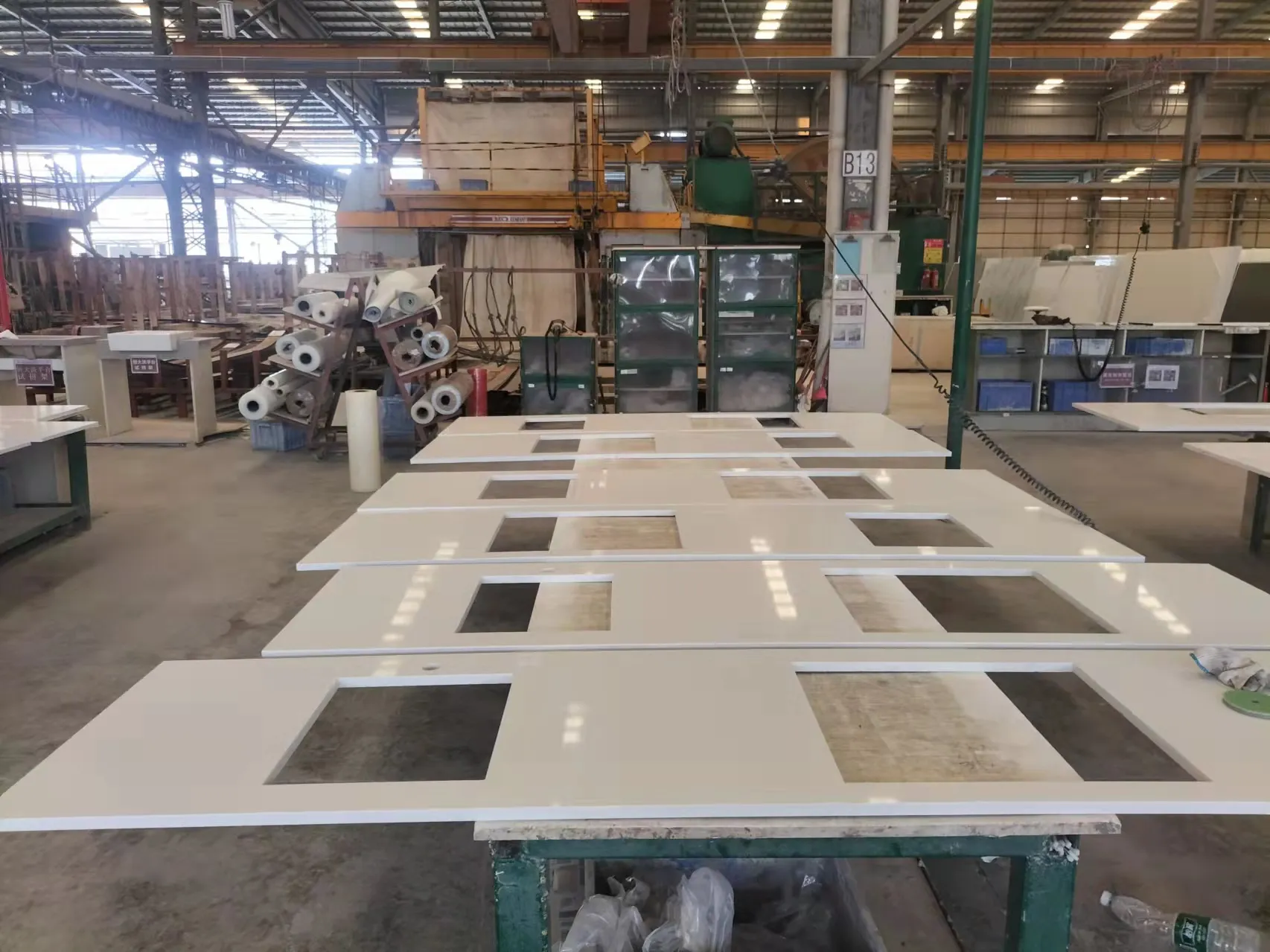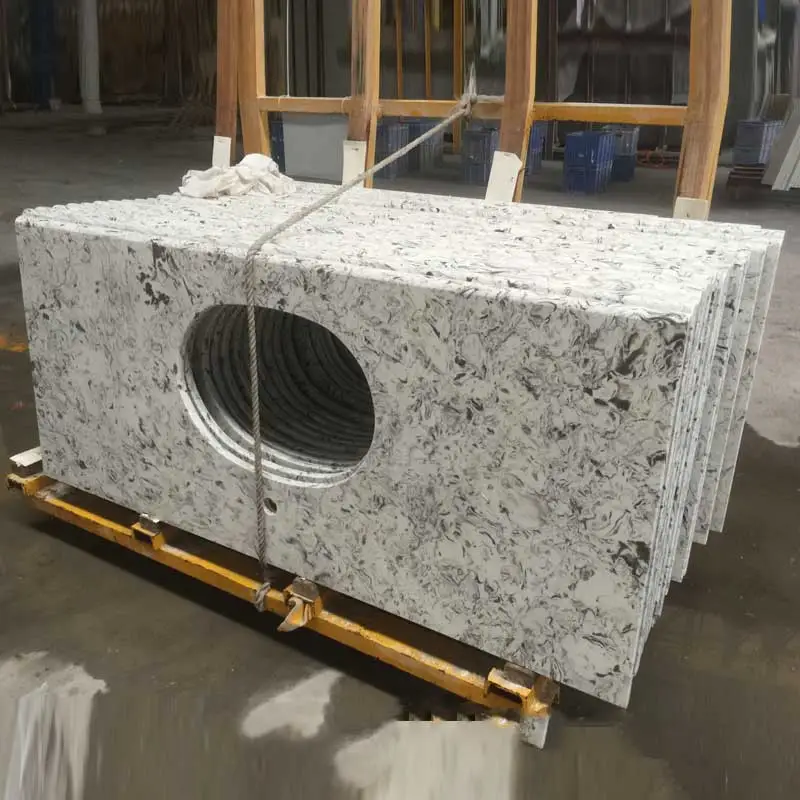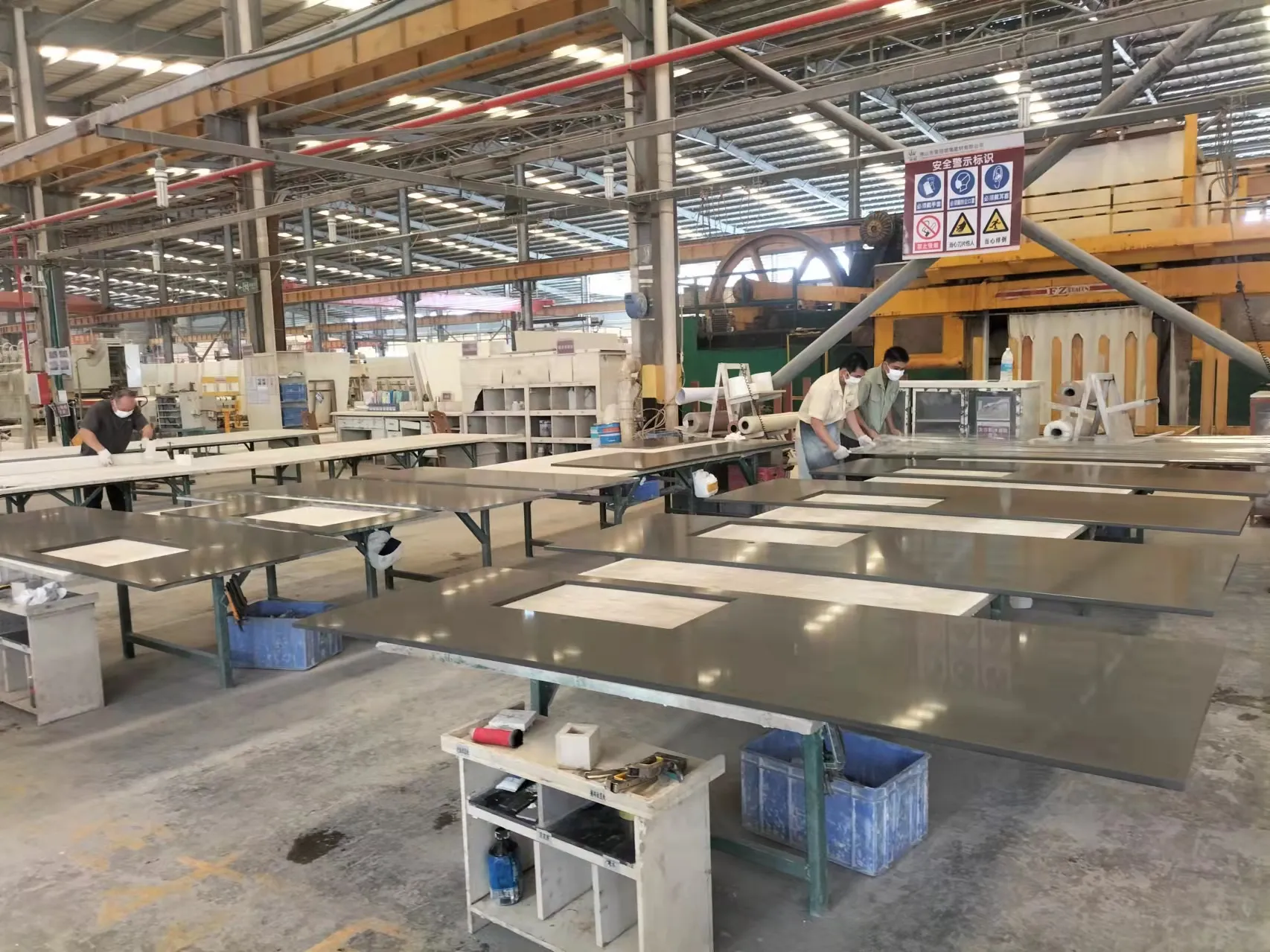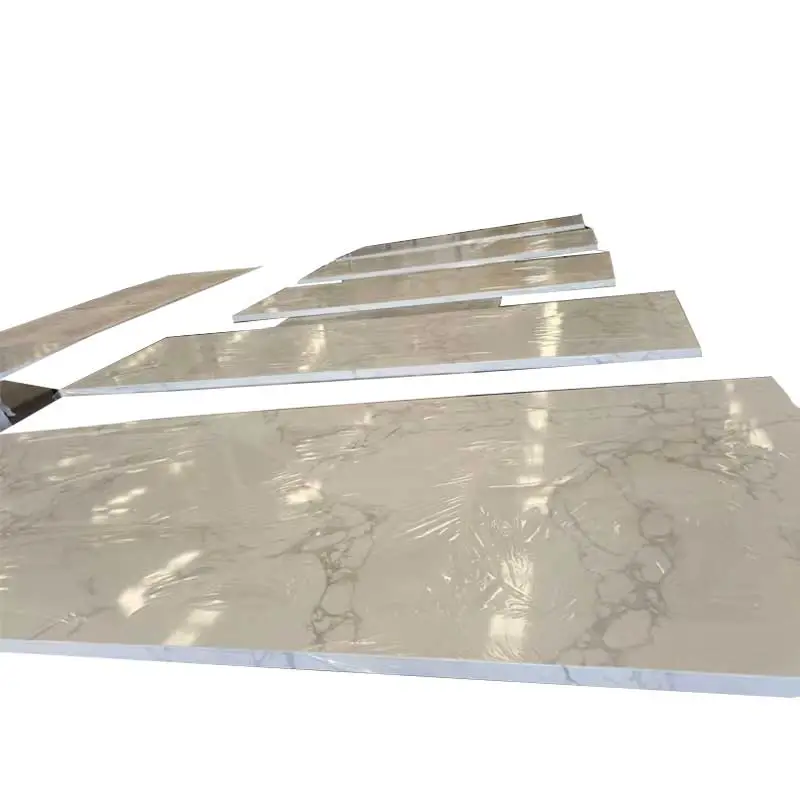In recent years, engineered stone countertops have become a very popular material choice in areas such as kitchens and bathrooms. It not only has excellent durability and beauty, but is also easy to maintain, and plays an important role in home decoration. For owners and designers, choosing the right countertop thickness is one of the key steps to ensure functionality and beauty.
So, what are the thickness options for engineered stone countertops? How do countertops of different thicknesses affect the actual use effect? This article will conduct a detailed analysis around these issues to help readers better understand the thickness selection of engineered stone countertops.

Basic composition and thickness overview of engineered stone countertops
Before exploring thickness options, understanding the basic composition of engineered stone countertops is crucial to understanding the importance of its thickness. Engineered stone, also known as synthetic stone or artificial stone, is mainly made of natural quartz sand, resin and color materials through high-pressure pressing. Compared with natural stone, engineered stone has better stain resistance, scratch resistance and penetration resistance, making it the preferred material for countertops in many homes and commercial places.
The thickness of engineered stone countertops usually varies according to usage requirements, design style and installation environment. Common thicknesses range from 12 millimeters (mm) to 30 mm, with different thicknesses bringing different physical properties and aesthetic effects. Therefore, when purchasing and installing engineered stone countertops, the choice of thickness is a link that requires in-depth consideration.

What are the thickness options for engineered stone countertops?
12 mm thick engineered stone countertops
12 mm thick engineered stone countertops are thinner and are often used in some modern, minimalist designs. Its main features are as follows:
● Lightweight: 12 mm thick countertops are lighter than thicker options and are suitable for more sophisticated design requirements, especially for suspended countertops, floating countertops and other design solutions. Because of its light weight, it has relatively low requirements for supporting structures during installation, reducing the burden on the load-bearing cabinet.
● Beautiful and simple: The 12 mm thickness provides a simple and stylish visual effect, suitable for users who like minimalist style. This thickness of countertop is easier to match with modern home styles, presenting clean lines and a light appearance.
● Applicable scenarios: Countertops of this thickness are more commonly used in areas with strong decorative features, such as wall decorations, bathroom sinks, etc. The frequency of use of such places is relatively low, and the durability requirements for countertops are not as high as those for kitchen countertops, so 12 mm thickness is sufficient to meet the needs of these scenarios.
● Cost-effectiveness: Due to the small amount of material used, 12 mm thick engineered stone countertops are usually more affordable than other thicker options, which is a good choice for users with limited budgets.
However, 12 mm engineered stone countertops may face certain durability challenges in places with high frequency of use, such as kitchens. Because of its thin thickness, it will be slightly less stable and impact-resistant when under heavy pressure, and additional reinforcement measures may be required during installation to ensure its stability.
20 mm thick engineered stone countertops
20 mm thick engineered stone countertops are a more common thickness option on the market, combining functionality and aesthetics. Its features are as follows:
● Balanced performance: The 20 mm thickness provides better strength and balance, which is neither too heavy nor too heavy, and can provide sufficient support and stability. This thickness performs well in scenes such as kitchens that require frequent use and load-bearing. Compared with 12 mm thickness, 20 mm countertops have significantly improved load-bearing and impact resistance, and are suitable for kitchen worktops or islands where heavy objects are often placed.
● Versatility: 20 mm thick countertops are suitable for a variety of use scenarios such as kitchens, bathrooms, and workbenches. Whether it is a home kitchen or a commercial place, this thickness can provide sufficient durability and aesthetic effects. In addition, its thickness is thin enough to allow designers to use it flexibly to create a lighter countertop effect without making the space appear too heavy.
● Structural strength: The high hardness and low water absorption rate of engineered stone itself make 20 mm thick countertops excellent in resisting stains, scratches and heat damage. Compared with 12 mm thickness, 20 mm countertops are more durable when facing heavy objects and are not prone to cracks or damage.
● Common applications: This thickness of engineered stone countertops is widely used in kitchen countertops, bathroom countertops, commercial worktops and other areas, which can withstand high-frequency use without losing beauty.
20mm thick countertops are an ideal choice, which can maintain a modern look visually and provide strong support and durability in actual use.
30mm thick engineered stone countertops
30mm thick engineered stone countertops are the heaviest choice, and their advantages lie in their excellent durability and high-end feel. The main features are as follows:
● Extremely high durability: 30mm thick countertops are very suitable for places that require long-term use and withstand high-intensity work. Whether it is a home kitchen or a commercial kitchen that requires frequent cutting, knocking and other operations, 30mm thick countertops can handle it with ease. Due to its increased thickness, its performance in impact resistance and bending resistance is significantly improved, and it is almost not easy to damage.
● High-end visual effect: 30mm thick engineered stone countertops appear very stable and luxurious visually, suitable for users who pursue a sense of heaviness, stability and high-end design. The heavy countertop can give the entire kitchen or bathroom space a high-end and atmospheric feeling, which meets the design requirements of high-end decoration.
● Enhanced load-bearing capacity: Due to the increased thickness, 30mm thick countertops can withstand greater weight and are suitable for placing heavy kitchen appliances or other large objects that need to bear weight. Its sturdiness makes it more reliable to install complex kitchen islands or larger countertop designs.
● Durability and safety: 30mm thick countertops can not only cope with the wear and tear of daily use, but also provide an extra sense of security. In frequently used kitchen scenes, thick countertops can effectively prevent damage caused by heavy objects hitting or high-temperature pots.
● Common applications: 30mm thick engineered stone countertops are often used in high-end residential and commercial projects, especially in places such as kitchen islands and workbenches that require large countertops. The thick countertops can better support the overall structure.
Although 30mm thick countertops have excellent durability, they also have an obvious disadvantage, which is their heavy weight. During installation, the cabinet may need to be additionally reinforced to ensure that it can withstand the weight of the countertop. In addition, due to the use of more materials and relatively higher costs, it may not be the best choice if the budget is limited.

Comparison of advantages and disadvantages of countertops of different thicknesses
When choosing the thickness of engineered stone countertops, users need to weigh the performance advantages and potential disadvantages brought by the thickness. The following is a comparative analysis of the advantages and disadvantages of countertops of different thicknesses:
12mm thickness
● Advantages:
● Lightweight and easy to install
● Suitable for modern minimalist style
● Low cost, suitable for projects with limited budgets
● Disadvantages:
● Limited load-bearing capacity and weak durability
● Additional reinforcement may be required to ensure stability
20mm thickness
● Advantages:
● Balanced performance, suitable for a variety of uses
● Good load-bearing capacity and durability
● Modern visual effects and flexible installation
● Disadvantages:
● Slightly more expensive than 12mm thickness
● May be a bit heavy for some complex designs
30mm thickness
● Advantages:
● Extremely high durability and load-bearing capacity
● High-end and atmospheric visual effects
● Suitable for high-intensity use scenarios
● Disadvantages:
● Heavier weight and difficult to install
● Higher cost and larger budget requirements

How to choose the right countertop thickness?
Choosing the thickness of engineered stone countertops is not only based on personal preference, but also requires comprehensive consideration of multiple factors, including usage scenarios, design style, budget and installation conditions. The following points can be used as a reference for choosing thickness:
1. Frequency of use: For high-frequency usage scenarios such as kitchens, it is recommended to choose a thickness of 20 mm or 30 mm to ensure the durability of the countertop. For places with strong decorativeness and low frequency of use, such as bathroom sinks, 12 mm countertops can be selected.
2. Design style: If you pursue a minimalist modern style, a 12 mm countertop can provide a lighter visual effect. If you want to create a stable and high-end space, a 30 mm thick countertop can better meet your needs.
3. Budget considerations: 12 mm countertops are usually more economical and suitable for users with limited budgets, while 30 mm thick countertops are relatively expensive due to the use of more materials.
4. Installation conditions: Since the 30mm thick countertop is heavier, you need to ensure that the load-bearing structure is stable enough during installation. If the existing cabinet structure is not suitable, you can consider choosing a 20mm thick countertop to take into account both installation convenience and aesthetics.
Rongguan is a manufacturer you can rely on for durable and stylish building materials. We specialize in low-priced wholesale supplies of artificial marble, quartz stone, and roof tiles. Explore our customized options for your next project!

